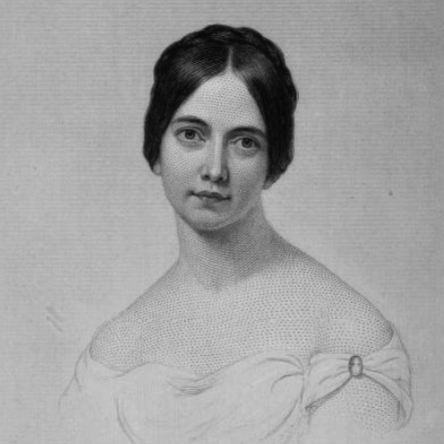Thank God, I Glory in Thy Love!
Thank God, I glory in thy love, and mine!
And if they win a warm blush to my cheek,
It is not shame—it is a joy divine,
That only there its wild bright life may speak.
From that most sacred and ecstatic hour,
When, soul to soul, with blissful thrill we met,
My love became a passion, and a power,
Too proud, too high, for shame or for regret.
Come to me, dearest, noblest!—lean thy head,
Thy gracious head, once more upon my breast;
I will not shrink nor tremble, but, instead,
Exulting, soothe thee into perfect rest.
I know thy nature, fervent, fond, yet strong,
That holds o’er passion an imperial sway;
I know thy proud, pure heart, that would not wrong
The frailest life that flutters in thy way;
And I, who love and trust thee, shall not I
Be safe and sacred on that generous heart?
Albeit, with wild and unavailing sigh,
Less firm than thou, I grieve that we should part!
Ah! let thy voice, in dear and low replies,
Chide the faint doubt I sooner say than think;
Come to me, darling!—from those earnest eyes
The immortal life of love I fain would drink!
This poem is in the public domain. Published in Poem-a-Day on November 23, 2024, by the Academy of American Poets.
“Thank God, I Glory in Thy Love!” is in the collected volume Poems (Carey and Hart, 1850) by Frances Sargent Osgood. Poet Edgar Allan Poe, with whom Osgood had a close relationship, wrote the following in his essay, “The Literati of New York City”: “I cannot speak of the poems of Mrs. Osgood without a strong propensity to ring the changes upon the indefinite word ‘grace’ and its derivatives. It seems, indeed, the one key-phrase unlocking the cryptograph of her power—of the effect she produces. And yet the effect is scarcely more a secret than the key. Grace, perhaps, may be most satisfactorily defined as a term applied, in despair, to that class of the impressions of beauty which admit neither of analysis nor of comprehension. It is in this irresoluble charm—in grace—that Mrs. Osgood excels any poetess of her country—or, indeed, of any country under the sun. Nor is she more graceful herself than appreciative of the graceful, under whatever guise it is presented to her consideration. The sentiment, the perception, and the keenest enjoyment of grace, render themselves manifest in innumerable instances, as well throughout her prose as her poetry.”

